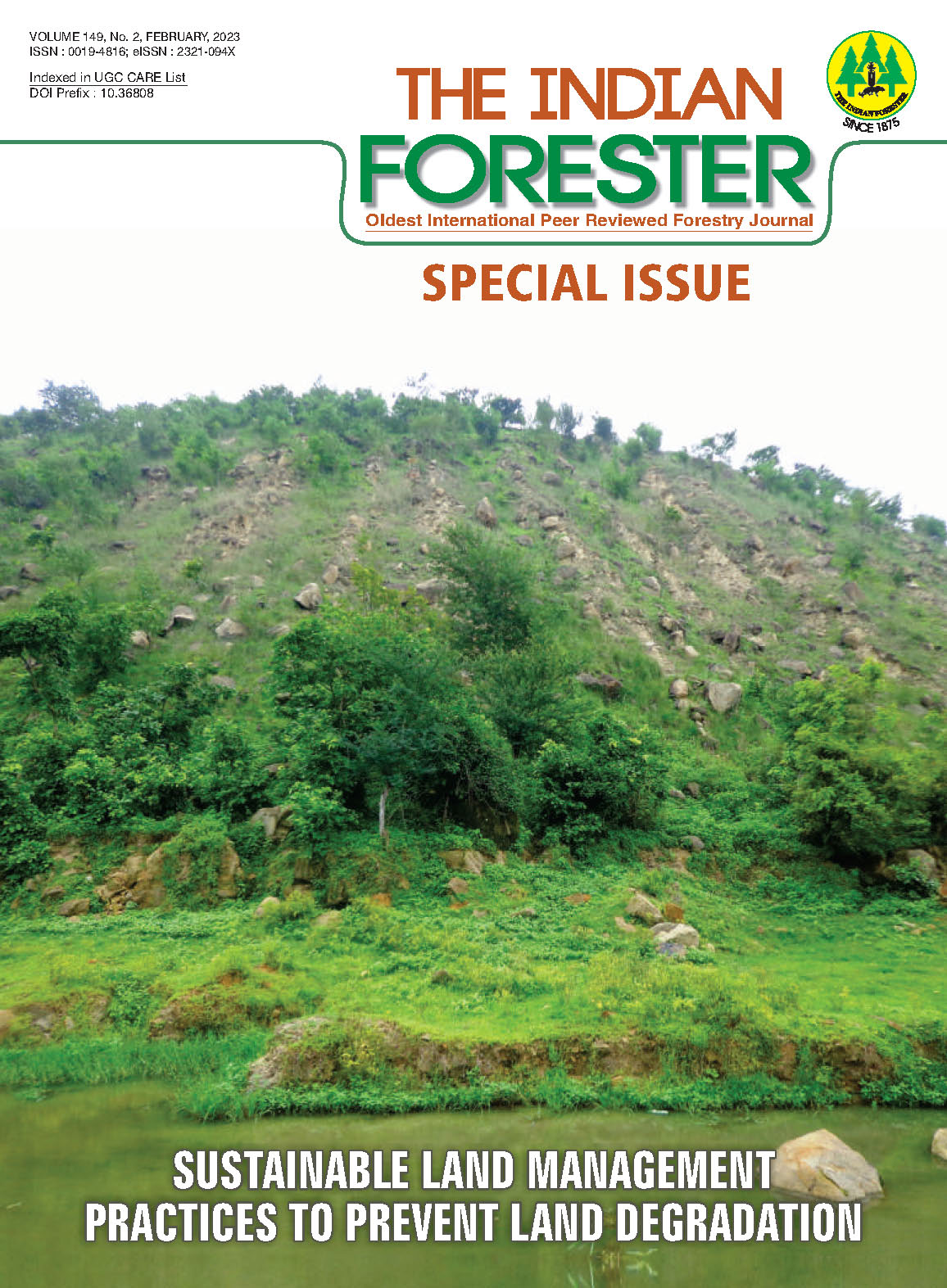Seed Balls Accelerate Succession of Plant Species in Degraded Coal Mined Land Restoration : A Case Study on Tikak Colliery, Margherita, Assam, India
DOI:
https://doi.org/10.36808/if/2023/v149i2/169719Keywords:
Seed Ball, PGPRs, Coal Mined OBD, Seed, Native Plant Species, Succession.Abstract
Astudy was conducted to introduce seed ball technology in an opencast coal mined overburden dump (OBD) site of Tikak Colliery, Margherita, Assam, India with an objective to study the seed germination and survival of plant species. The other objective was to record the plant species that allowed to grow naturally on the OBD after 3 years of seed balls sowing. Seeds of nine native plant species were used for preparation in seed balls. PGPRs with 10-6 isolated from native soils were used @ one litter of PGPR with 10 concentration to treat 10 kg of seeds and made seed balls to enhance germination, amelioration and survival. About 12000 seed balls of all the nine plant species were sown at the on sets of monsoon in the year 2018. The study revealed that per cent seed germination of 4 leguminous species i.e. Crotolaria striata, Mimosa pudica, Indigofera tinctoria and Pongamia pinnata was 20-35%, whereas the survival was far batter 50-60% in comparison to two grass species except Thysanolaena latifolia. Soil physicochemical parameters were also found to improve with time. A total of 26 naturally colonizing plant species were also recorded from the site 3 years after sowing of seed balls. Of them 20 were herbs. Poaceae family with 8 species dominated the herbaceous flora. Other plant species includes 4 fern species, 4 shrubs and two tree species i.e. Callicarpa arborea and Schima wallichii. Among the natural invaders, 2 plant species Chromolaena odorata and Lantana camara were invasive species. The seed ball technology could accelerate succession of plant species in degraded coal mined OBD of Tikak Colliery, Margherita, Assam. The technology may be replicated for further confirmation in other mined land restoration programme.Downloads
Download data is not yet available.
Downloads
Published
2023-05-04
How to Cite
Hazarika, P., Dutta, D., Hazarika, P., Giri, K., & Dutta, S. P. (2023). Seed Balls Accelerate Succession of Plant Species in Degraded Coal Mined Land Restoration : A Case Study on Tikak Colliery, Margherita, Assam, India. Indian Forester, 149(2), 197–206. https://doi.org/10.36808/if/2023/v149i2/169719
Issue
Section
Articles
License
Unless otherwise stated, copyright or similar rights in all materials presented on the site, including graphical images, are owned by Indian Forester.





